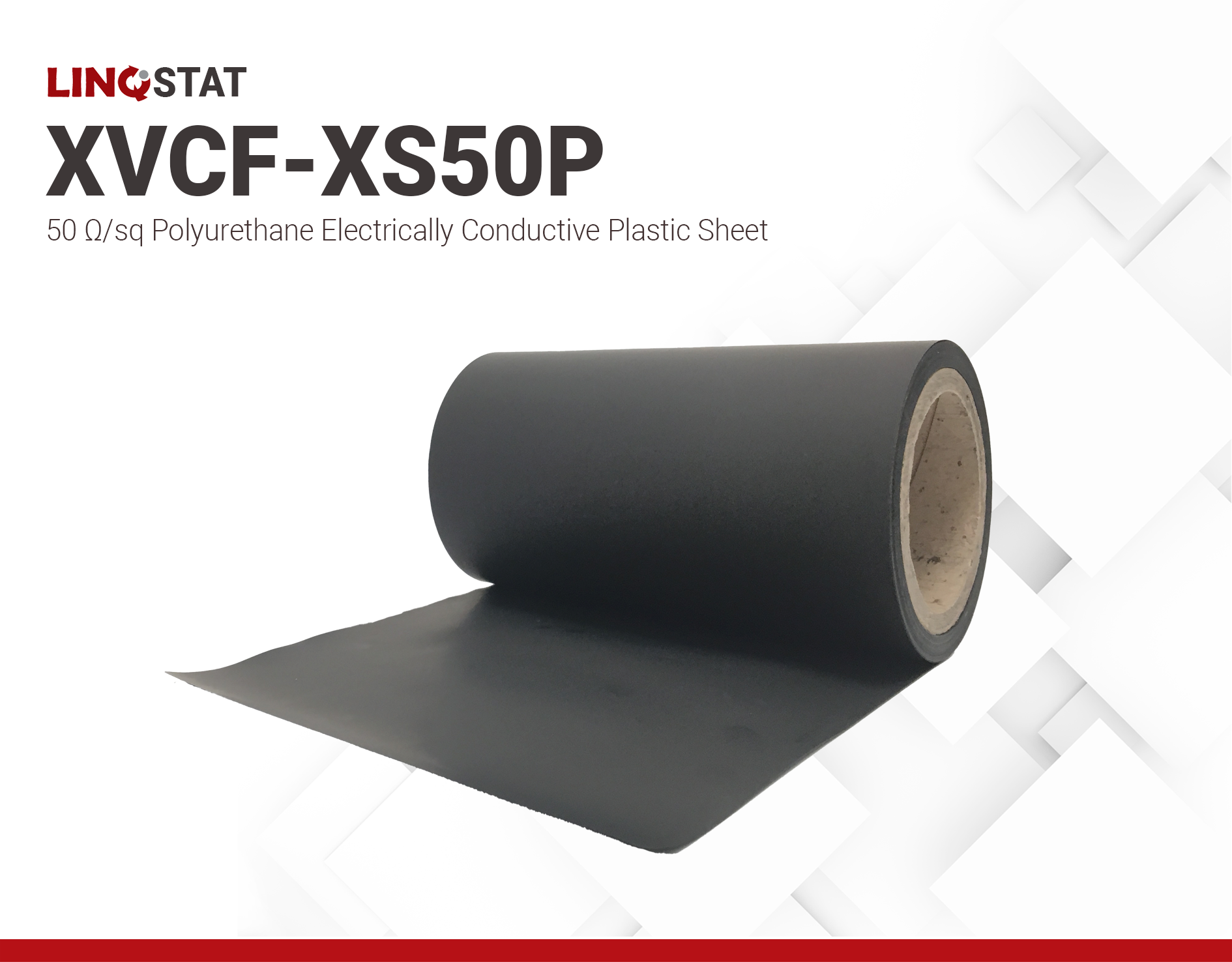XVCF-XS50P | LINQSTAT - 50 Ω/sq Conductive Film
- 2.6 mil - 2.75mil
- ±50 Ohms/sq Surface resistivity
- Polyurethane film
Product Description
LINQSTAT XVCF-XS50P is a highly conductive conductive polyurethane film with a very high electrically conductive carbon and graphene loading and a very dense polymer mix. Using a premium polymer and a refined process, we are able to increase the conductivity and thus reduce the surface resistance of the plastic to as low as ±30-50 ohms/sq of surface resistance. This extra loading allows the film to be used in applications that require a lower resistivity. Volume resistivity, based on the thickness of the material still needs to be measured.
XVCF-XS50P conductive films are thin (±2.6 up to 3 mil), lightweight and relatively inert. Furthermore, they are well suited for applications requiring electrochemical reactions, high conductivity or charge storage including but not limited to electrodes (ECG, TENS, Defibrillation and Iontophoresis), batteries (flat-cell zinc/manganese dioxide (MnO2), Lithium Ion and Lithium polymer), wearable electronics and digital whiteboards.
XVCF-XS50P film and its conductivity are unaffected by humidity and age. It has a standard thickness of ±66-70µm (2.6 - 2.75 mil) and is available in various lengths and widths upon request. This is one of the most conductive plastic films in our entire product line. It has an operating temperature of -10°C up to 120°C and its melting temperature is ~160-180°C.
Technical Specifications
| General Properties | |||||
| Chemistry Type | Polyurethane | ||||
| Density (g) | 1.36 g/cm3 | ||||
| Film Thickness | ~65 mm | ||||
| Mechanical Properties | |||||
| Elongation Elongation Elongation is the process of lengthening something. It is a percentage that measures the initial, unstressed, length compared to the length of the material right before it breaks. It is commonly referred to as Ultimate Elongation or Tensile Elongation at break. | 109 % | ||||
| |||||
| Electrical Properties | |||||
| Surface Resistivity | 30 - 50 Ohms/sq | ||||
| Thermal Properties | |||||
| Thermal Conductivity Thermal Conductivity Thermal conductivity describes the ability of a material to conduct heat. It is required by power packages in order to dissipate heat and maintain stable electrical performance. Thermal conductivity units are [W/(m K)] in the SI system and [Btu/(hr ft °F)] in the Imperial system. | 0.053 W/m.K | ||||



